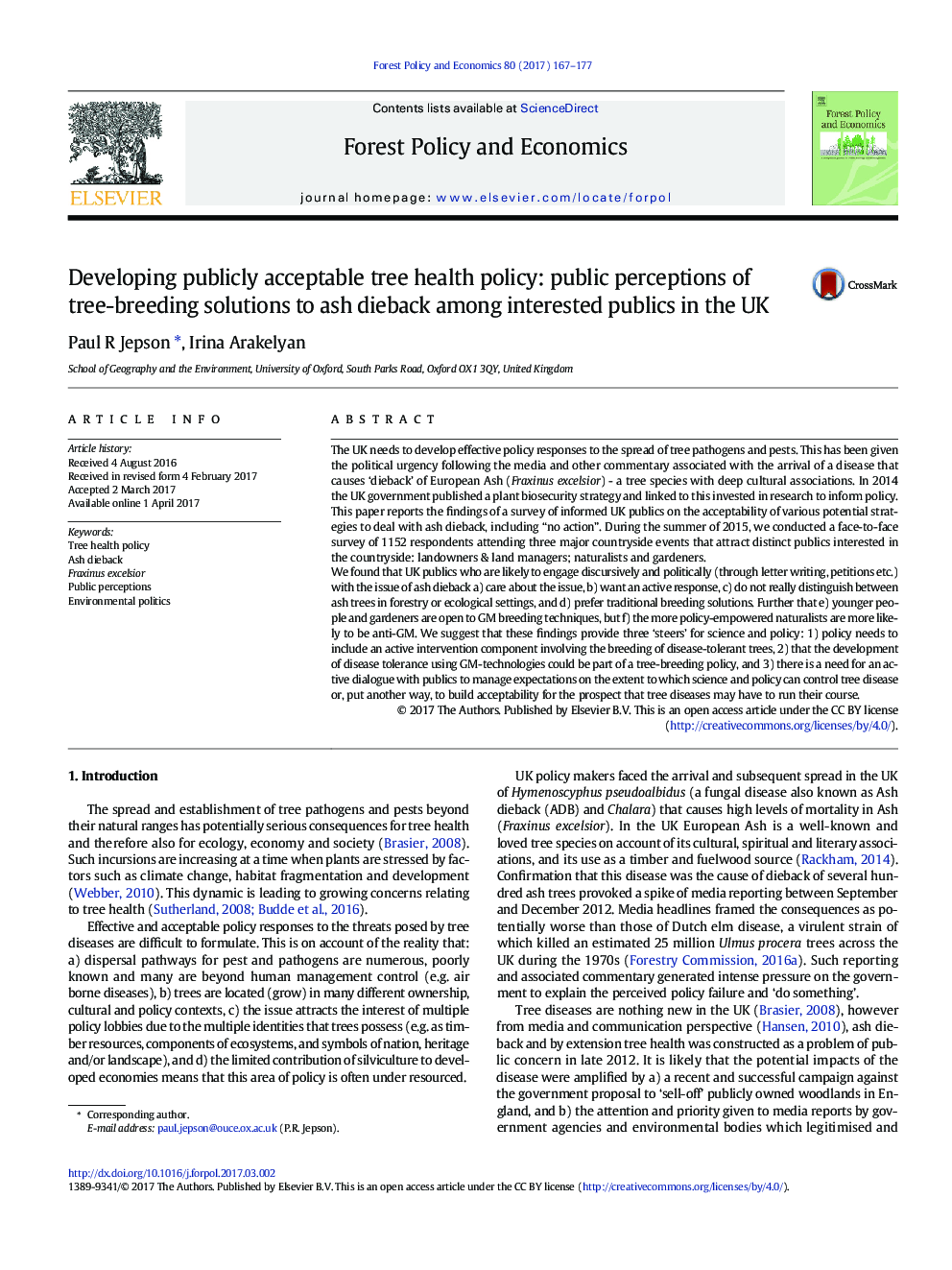| کد مقاله | کد نشریه | سال انتشار | مقاله انگلیسی | نسخه تمام متن |
|---|---|---|---|---|
| 6459747 | 1421659 | 2017 | 11 صفحه PDF | دانلود رایگان |
- A survey at UK countryside events found that publics expect relevant authorities to intervene to manage ash dieback disease.
- Breeding disease tolerance within native ash using traditional methods was the most acceptable solution.
- However, we found substantial levels of support for cis-genetic breeding solutions, but less for trans-GM approaches.
- Support for GM approaches was higher among gardeners and younger respondents.
- Tree health policy in the UK should retain an active intervention component involving development of tree-breeding solutions.
The UK needs to develop effective policy responses to the spread of tree pathogens and pests. This has been given the political urgency following the media and other commentary associated with the arrival of a disease that causes 'dieback' of European Ash (Fraxinus excelsior) - a tree species with deep cultural associations. In 2014 the UK government published a plant biosecurity strategy and linked to this invested in research to inform policy. This paper reports the findings of a survey of informed UK publics on the acceptability of various potential strategies to deal with ash dieback, including “no action”. During the summer of 2015, we conducted a face-to-face survey of 1152 respondents attending three major countryside events that attract distinct publics interested in the countryside: landowners & land managers; naturalists and gardeners.We found that UK publics who are likely to engage discursively and politically (through letter writing, petitions etc.) with the issue of ash dieback a) care about the issue, b) want an active response, c) do not really distinguish between ash trees in forestry or ecological settings, and d) prefer traditional breeding solutions. Further that e) younger people and gardeners are open to GM breeding techniques, but f) the more policy-empowered naturalists are more likely to be anti-GM. We suggest that these findings provide three 'steers' for science and policy: 1) policy needs to include an active intervention component involving the breeding of disease-tolerant trees, 2) that the development of disease tolerance using GM-technologies could be part of a tree-breeding policy, and 3) there is a need for an active dialogue with publics to manage expectations on the extent to which science and policy can control tree disease or, put another way, to build acceptability for the prospect that tree diseases may have to run their course.
Journal: Forest Policy and Economics - Volume 80, July 2017, Pages 167-177
